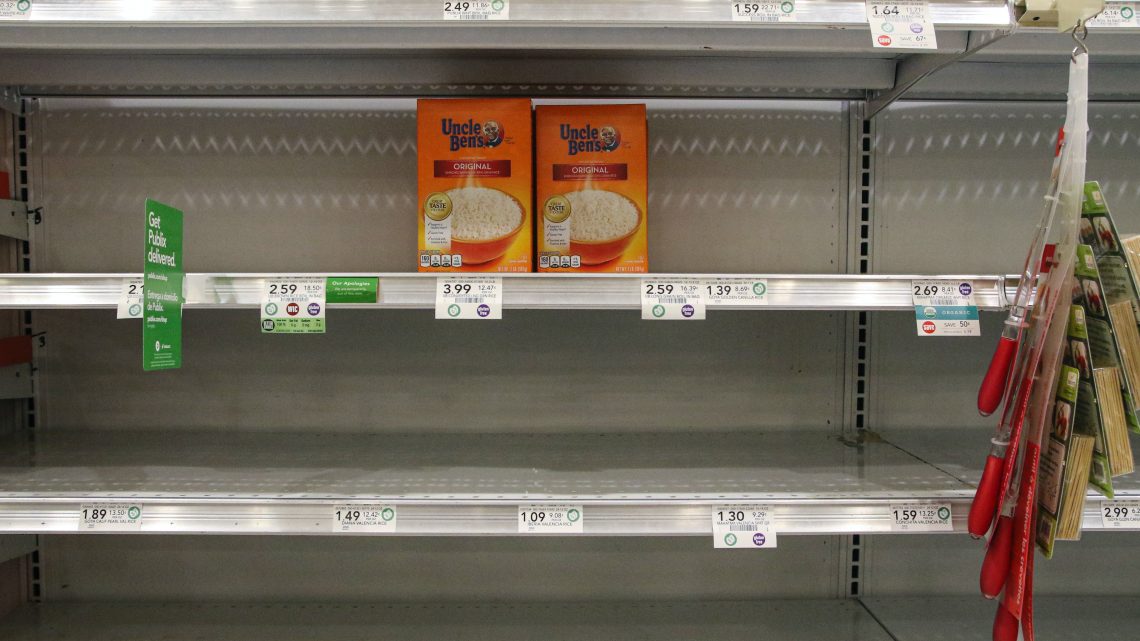During the beginning stages of the Coronavirus pandemic, many stores experienced shortages in everyday household items. Due to the contagious nature of the virus, items such as hand sanitizer, antibacterial soap, and toilet paper were almost impossible to find. In some cases, sellers on Ebay and Amazon took advantage of the shortage by inflating the prices of these items and making it hard for the everyday consumer to purchase what they needed.
Unfortunately, personal health items weren’t the only things flying off the shelves. Certain food staples such as meat, eggs, and bread were also hard to come by. While some people are able to get creative with their recipes and work around this, some families do not have this same luxury. Lower income families rely on certain services such as WIC (Women, Infants and Children) and SNAP (Supplemental Nutrition Assistance Program) to partially or fully fund their food budget every month. While it’s not intentional, panic buying can ultimately hurt lower-income families over time. Learn more about the effect of panic buying on American families here.
What is Panic Buying?
Panic buying is commonly defined as when a person buys large quantities of products due to the fear of shortages or price increases. This typically happens before a destructive weather event, such as a tropical storm or a hurricane. After the threat of a government enforced COVID-19 quarantine began to circulate, people became anxious and cleaned out their local grocery stores of multi-use food items such as eggs, pasta, and soup. The problem with this is that many families who are on government programs are specifically allotted these products in their food budgets.
What is WIC & SNAP?
In America, food poverty is a real issue. Defined as the inability to obtain healthy and affordable food, many families are unable to fill their stomachs’ with organic and healthy foods due to their rising popularity and costs. This is where government assistance programs like WIC and SNAP come in. These programs give families in need a monthly budget to make it easier to obtain healthy (and sometimes costly) foods such as meat, poultry, cereal, bread, fruits, vegetables, and milk.
These programs help families stretch their food dollars, especially if a parent is working with a smaller budget due to a recent divorce or job loss. According to an Orange County child support lawyer, “Childcare expenses for the caretaker or custodial parent certainly aren’t cheap.” Because of the high costs that come with raising a family, especially as a single parent, these programs can literally save lives.
How You Can Help
Don’t buy more than you need: Purchase the items that you need for 2 weeks max. Most fresh foods fall into this window for their expiration date and can be frozen if there are still leftovers. By purchasing more than you need, you are depriving another family of something they need.
Avoid shopping on certain dates: For some assistance programs, there are certain dates that they are able to use their benefits. These days typically are in the beginning of the month, so if possible, plan to shop after these days, especially at stores that are authorized WIC vendors
Donate to food banks: If you’re guilty of being a panic buyer in the past, donate your surplus of canned goods to a local food bank to help local families struggling to find essentials during this time.
As it’s been said over and over, this is an unprecedented time for this country and we’re learning to navigate it one day at a time. Do your part by limiting your time away from the house, especially when it comes to panic buying and hoarding necessities.





No Comment